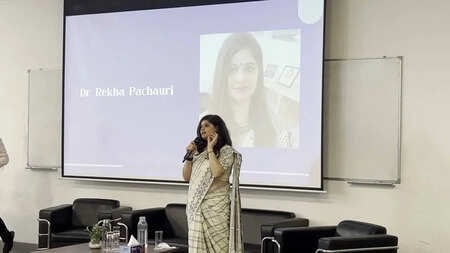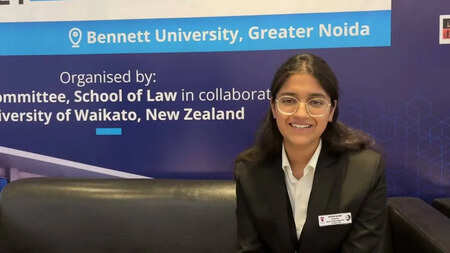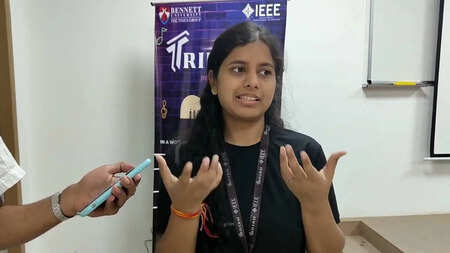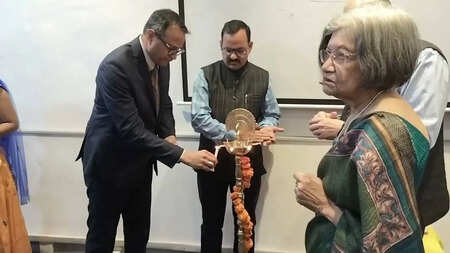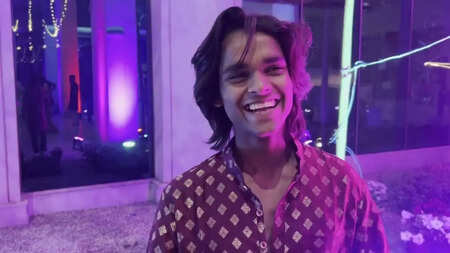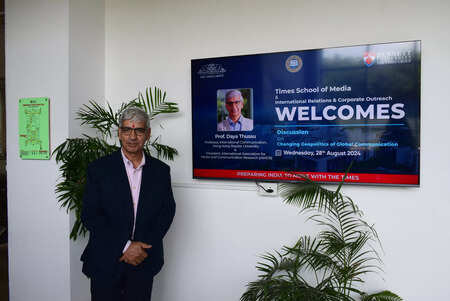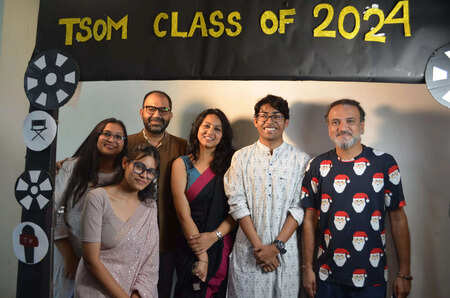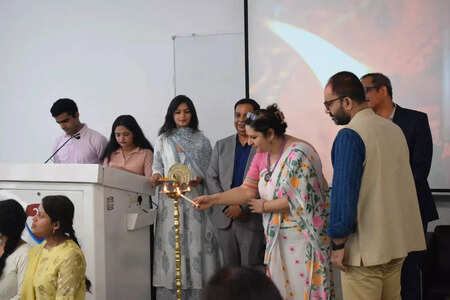Telling Stories for Cleaner Skies: CMS Vatavaran at Bennett
Times of Bennett | Updated: Sep 12, 2025 11:04

Correspondent: Aakanksha Shree
Photojournalist: Samarth Mahajan
Can Delhi-NCR and India at large ever escape the smog and reclaim the right to breathe freely? This urgent issue set the tone for Breath of Change, an initiative byCMS in collaboration with the Ministry of Environment, Forest & Climate Change and the Commission for Air Quality Management in NCR and adjoining areas, organised by the Times School of Media, Bennett University.

The event was attended by both freshmen and seniors and opened with the traditional lamp lighting ceremony. Distinguished guests included Mr. KenchoDorji , Senior Executive in digital media and global studies; Ms. Preeti Kashyap, Senior Executive in mass communication and sustainable development; and Mr. Lal Singh, Executive with experience in film festival management.
From the start of the event, the focus was clear: The power of media to inspire change. Mr. Dorji challenged students with a simple yet impactful question: “How can we tackle air pollution?”, before presenting a series of films that enlightened the students with both the severity of the crisis and the hope that lies in collective action.
Each short film screening demonstrated how storytelling can drive awareness. It started with Mission Life: Showcased the lifestyle shift, while Beyond Stubble Farming: revealed industries at fault and not just farmers, whereas Sasso Ki Siyahi: exposed the personal cost of toxic air, and Women as Drivers of Green Mobility showcased electric buses and female drivers as symbols of progress. The high school student film Saans resonated strongly, exposing corruption and suppressed voices, proving that a powerful system can be held accountable even by young filmmakers.
 Faculty voices added depth to the conversation. Prof. Dr. Gauri Chakraborty, TSOM, highlighted the realities of Punjab’s farmers and their claim in the air crisis. To which students responded actively, reflecting their role in addressing the pollution.
Faculty voices added depth to the conversation. Prof. Dr. Gauri Chakraborty, TSOM, highlighted the realities of Punjab’s farmers and their claim in the air crisis. To which students responded actively, reflecting their role in addressing the pollution.
Mr. Dorji reminded the students that the power of youth media can create: “Filmmakers can add a different perspective by showcasing stories from not just one angle”. Sharing his own experience, he added, “I bought N95 masks when I first came here, but gave up after three days, it was impractical. Yet I believe it is possible to make Delhi-NCR pollution-free.” He stressed that change needs to be both a mindset and an action, “Every institution has its own role, at CMS, we nurture young changemakers from media, through films. Air pollution can be tackled if everyone play their parts.”
The session ended with a collective vow to contribute to cleaner air. The Deputy Dean of TSOM, MrDhiraj Singh , further motivated the media students to use their creative strengths: filmmaking, writing or content designing, as a tool of advocacy.

The key takeaway was that media is not just about entertainment; it is a field for bringing transformation. As Mr. Dorji summed up: “Clean air is not a privilege, it is our fundamental right. It is possible, and it should be possible very soon."
The writer is a second-year BA Mass Communication student. She is passionate about journalism and reporting, with a special interest in international relations and geopolitics. She loves to write poetry and also watch true crime stories.
Photojournalist: Samarth Mahajan
Can Delhi-NCR and India at large ever escape the smog and reclaim the right to breathe freely? This urgent issue set the tone for Breath of Change, an initiative by

The event was attended by both freshmen and seniors and opened with the traditional lamp lighting ceremony. Distinguished guests included Mr. Kencho
From the start of the event, the focus was clear: The power of media to inspire change. Mr. Dorji challenged students with a simple yet impactful question: “How can we tackle air pollution?”, before presenting a series of films that enlightened the students with both the severity of the crisis and the hope that lies in collective action.
Each short film screening demonstrated how storytelling can drive awareness. It started with Mission Life: Showcased the lifestyle shift, while Beyond Stubble Farming: revealed industries at fault and not just farmers, whereas Sasso Ki Siyahi: exposed the personal cost of toxic air, and Women as Drivers of Green Mobility showcased electric buses and female drivers as symbols of progress. The high school student film Saans resonated strongly, exposing corruption and suppressed voices, proving that a powerful system can be held accountable even by young filmmakers.

Mr. Dorji reminded the students that the power of youth media can create: “Filmmakers can add a different perspective by showcasing stories from not just one angle”. Sharing his own experience, he added, “I bought N95 masks when I first came here, but gave up after three days, it was impractical. Yet I believe it is possible to make Delhi-NCR pollution-free.” He stressed that change needs to be both a mindset and an action, “Every institution has its own role, at CMS, we nurture young changemakers from media, through films. Air pollution can be tackled if everyone play their parts.”
The session ended with a collective vow to contribute to cleaner air. The Deputy Dean of TSOM, Mr

The key takeaway was that media is not just about entertainment; it is a field for bringing transformation. As Mr. Dorji summed up: “Clean air is not a privilege, it is our fundamental right. It is possible, and it should be possible very soon."
The writer is a second-year BA Mass Communication student. She is passionate about journalism and reporting, with a special interest in international relations and geopolitics. She loves to write poetry and also watch true crime stories.


